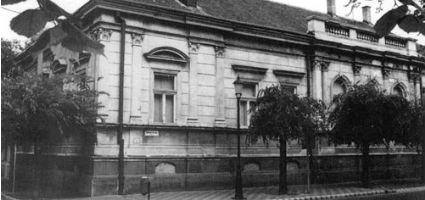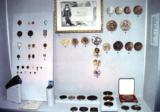2024. November 21. Thursday
János Thorma Museum - Kiskunhalas
 |
Address: 6400, Kiskunhalas Köztársaság utca 2.
Phone number: (77) 422-864
E-mail: info@thormajanosmuzeum.hu
Opening hours: 01.03-30.09.: Tue-Sut 9-17
|
The collection of the museum of Kiskunhalas came to existence in 1874. According to the plaque that was revealed on its 125th anniversary: 'The collection of György Révész with the guidance of parson Áron Szilády and István Gyárfás was bought by the Reformed Church of Kiskunhalas in 1874. In the same year the by unification of the Révész-collection end the collection if the reformed secondary school for girls the Museum of Halas was born. It is commonly called, the archives collection of the primary school.


